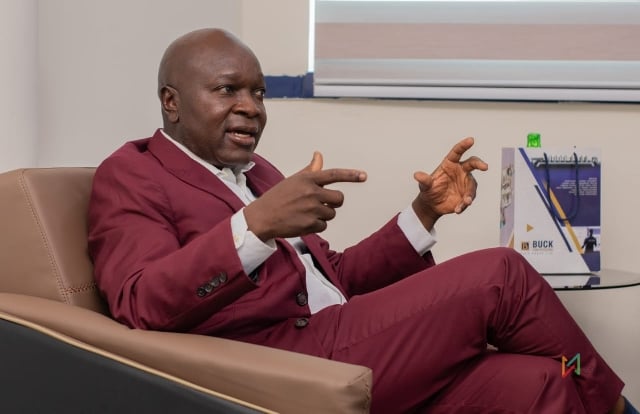Seidu Agongo, a prominent businessman and philanthropist, has revealed that his primary source of joy stems not from material possessions or hedonistic pursuits, but from positively impacting the lives of the less fortunate. In a candid interview, Mr. Agongo articulated his personal values and lifestyle choices, emphasizing his abstention from habits like drinking, smoking, gambling, and womanizing, which he considers detrimental to a fulfilling life. He credits this disciplined approach to his personal and professional success, asserting that chasing ephemeral pleasures offers no lasting value. Instead, he finds profound satisfaction in channeling his resources towards helping others, particularly vulnerable children and orphans.
Mr. Agongo explained that his dedication to philanthropy is rooted in a deep sense of responsibility to uplift those in need. He views assisting children who have lost their parents or come from disadvantaged backgrounds not just as charity, but as a moral obligation. He envisions himself stepping in to ensure that these children receive the support and opportunities they need to achieve their full potential, mirroring the aspirations their parents would have had for them. This commitment, he emphasized, is the true source of his happiness, far surpassing the fleeting gratification that might be derived from material possessions or romantic pursuits. For Mr. Agongo, contributing to the well-being of others provides a sense of purpose and fulfillment that transcends personal indulgence.
His philanthropic endeavors are not merely theoretical pronouncements; they are manifested in concrete actions. He has adopted orphans, providing them with a loving home and the necessary resources to thrive. Furthermore, he supports numerous children’s education by covering their school fees, recognizing that education is a powerful tool for social mobility and empowerment. These acts of generosity are not driven by a desire for recognition or acclaim, but rather by a genuine desire to make a tangible difference in the lives of those he assists. Mr. Agongo’s focus remains firmly on the positive impact he creates, finding joy in the knowledge that he is contributing to a better future for these children.
Mr. Agongo’s perspective challenges conventional notions of success and happiness, which often prioritize material wealth and self-gratification. He offers an alternative model, one that emphasizes the profound satisfaction that comes from using one’s resources to empower others and contribute to a more equitable society. His commitment to philanthropy is not simply an addendum to his business pursuits, but rather an integral part of his identity and a driving force behind his actions. He views business not just as a means to accumulate wealth, but also as a platform to create positive social change.
This philosophy is evident in his approach to personal finance. He consciously chooses to allocate his resources towards helping others rather than indulging in extravagant personal expenses. He expressed contentment with his current lifestyle, emphasizing that his focus lies not on acquiring more possessions, but on maximizing the positive impact he can have on the lives of those less fortunate. This mindset distinguishes him from many in his position, who might prioritize personal luxury over social responsibility. Mr. Agongo’s actions reflect a deep-seated belief that true wealth lies not in what one accumulates, but in what one gives back.
In a world often dominated by narratives of self-interest and material pursuit, Seidu Agongo’s story serves as a powerful reminder of the transformative potential of compassion and generosity. His commitment to uplifting the less fortunate, particularly vulnerable children, demonstrates that true joy can be found not in the pursuit of personal pleasure, but in the selfless act of making a difference in the lives of others. His story is an inspiration, challenging conventional notions of success and highlighting the profound fulfillment that comes from dedicating oneself to a purpose greater than oneself. Mr. Agongo’s life and actions embody the principle that true wealth is measured not by the size of one’s bank account, but by the positive impact one has on the world.














